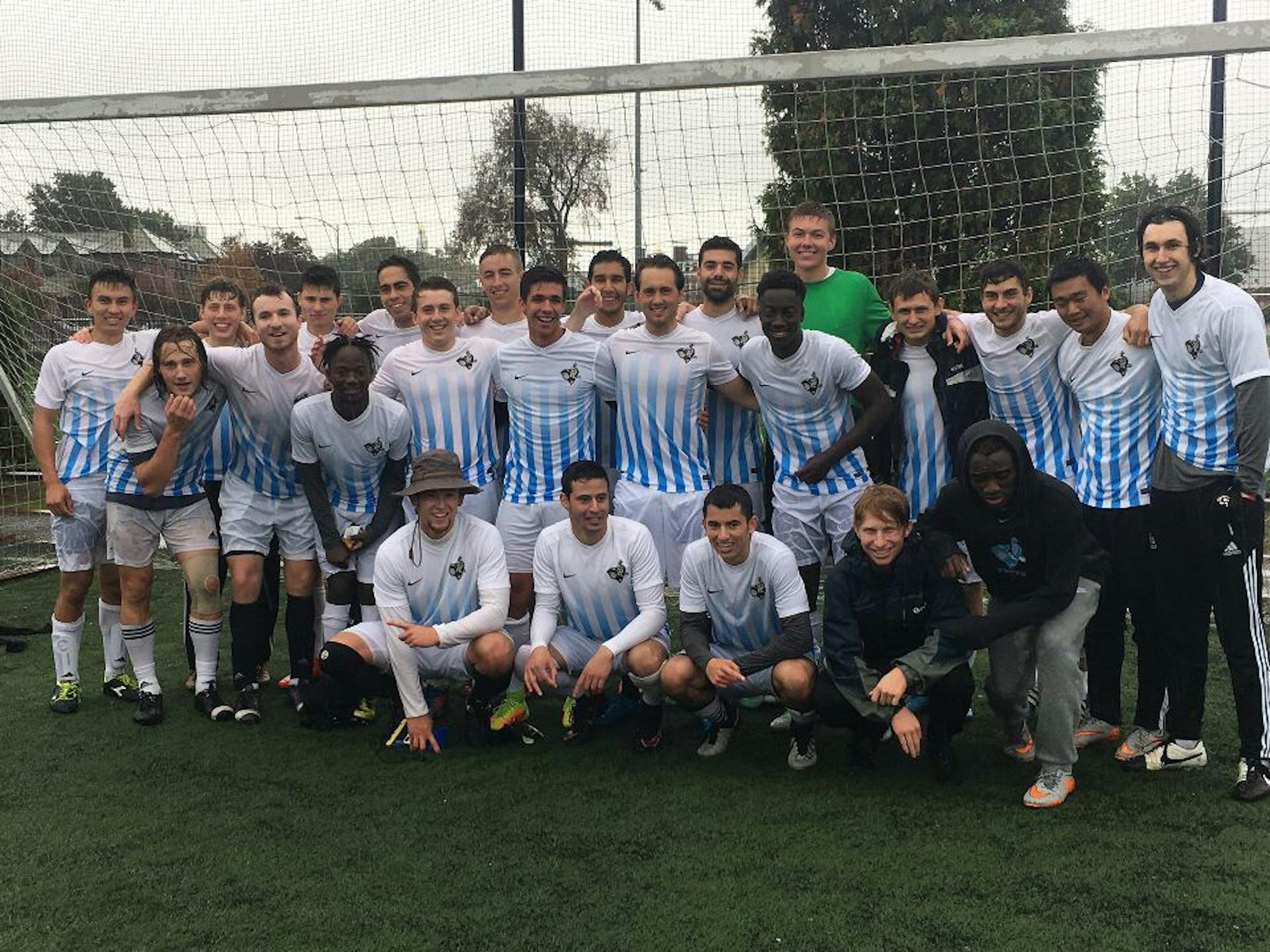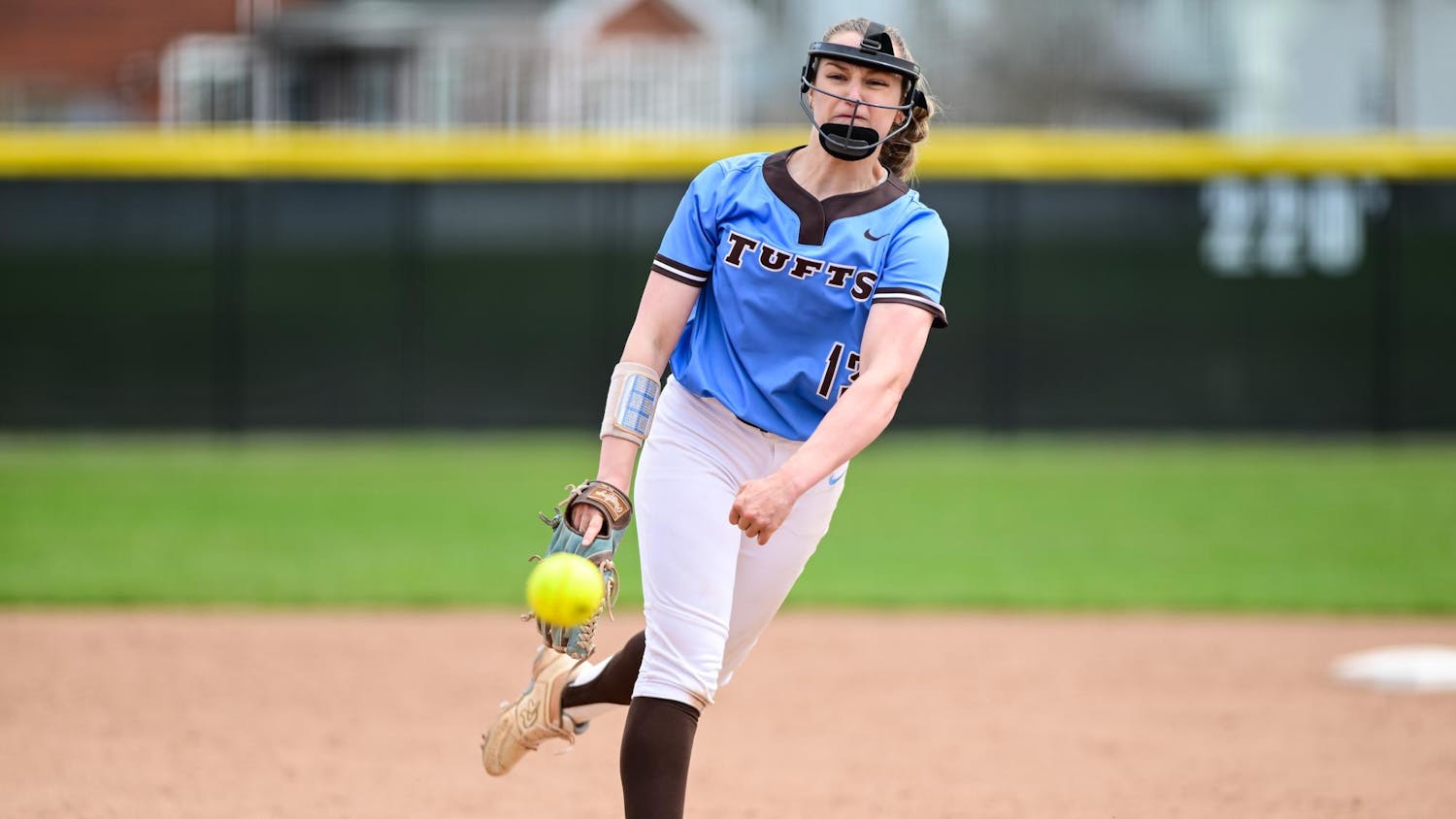Disclaimer: Arlo Moore-Bloom and Henry Stevens are columnists for the Daily and members of the club soccer team. Moore-Bloom is also a staff writer. Neither was involved in the writing or editing of this article.
This October, the Tufts men’s club soccer team was suspended for the entirety of its season. Over a month on, the details as to the severity and the justification of the decision are still murky.
In a joint written statement to the Daily, Dean of Student Affairs Mary Pat McMahon and Director of Athletics John Morris stated that the team was charged with a violation of the "Code of Conduct around a series of events that involved providing false information to university officials and deliberately disregarding direct instructions from university officials."
According to the team's tri-captains — senior Shant Mahrokian, junior Henry Stevens and sophomore Chris Concord — this kind of vagueness marked the entire process of communications between the team and the athletics department. Ultimately, the team was left frustrated by the final decision, and believes that it was this lack of communication that led to the initial misunderstanding.
Since June, Stevens had been corresponding with the athletics department, attempting to get in touch with the director of club sports to gain approval of the team's tentative game schedule. At this time and throughout the fall, Michael Salem, assistant coach of women’s track and field, was serving as the interim director of the club sports program before the new director, Matt Callahan was hired. According to Stevens, his queries and attempts to get ratification from Salem were met with silence.
When asked for a comment, Salem directed questions to Senior Associate Athletic Director Alexis Mastronardi, who provided other sources
"From June to August, I sent four emails and even made a phone call and received no response," Stevens said. "So I scheduled the games assuming it was okay because they didn’t really give me any guidelines."
The team didn’t encounter any issues until October, 18 hours before a game against Boston University (BU) that was scheduled for the team’s Wednesday practice time.
"They told us the day before [the] game ... that we could not play the following day and that if we did, [we] would risk suspension," Stevens said. "Given the time constraint and the fact that our opponent was not willing to cooperate — they said they’d make us forfeit the game if we had to reschedule. We played the game."
On Wednesday evenings the team would usually split Bello Field with the women's club soccer team. Ahead of the Sept. 20 game against BU, the men's team communicated with the women's team, and asked if they could use the entire field that night in exchange for the women's team using the entire field the following Wednesday. According to members of the men's team, the women's team agreed. Members of the women's club soccer team did not respond to requests for comment.
Since the women's team agreed to the switch, the administration's issue with the team playing its game against BU, as scheduled, was, and still is, unclear. First-year Darius Weckwerth believed that the threat of suspension had to do with an alleged violation of Title IX, because a female sports team was scheduled to use the field for a practice and was unable to do so.
"From what I understand, we had asked the [women's] team if we could have the field for [the] game, and they said yes," Weckwerth said. "Given that we were sharing the field with [them], the athletic director said that it would be a violation of Title IX."
In the final hearing on Oct. 13 with the Student Life Review Committee, however, there was no mention of the supposed Title IX violation. Stevens recalled that even after speaking further with the athletic administration, the reasons provided for both the initial suspension and the severity of the action taken remained ambiguous.
"They just told us that we can’t play on Wednesdays, and they didn’t really give a great reason for it," Stevens said. "The [stated] reason is that playing a game at 8:30 p.m. is disruptive to the local community, which is kind of weird because varsity sports play games at 7 p.m. Also, they said 'club sports don’t have games on Wednesdays, and that’s just how it is,' which doesn’t really make sense."
After the team neglected to heed the warnings of suspension, and played the game on Wednesday night anyway, it was informed that it had been temporarily suspended and was not allowed to play a match it had scheduled for Saturday against Brown. Again, the notice given by the athletic department gave short notice, according to Stevens.
"We got an email ... on Friday saying that we were temporarily suspended and could not play our game the following day, and that if we did it would be suspension for the season," Stevens said. "Again, given time constraints — with less than a 24-hour notice — we played the game against Brown anyway, which ended up getting us suspended for the whole academic year."
The athletic department’s decision to suspend the team for the remainder of the year was met with frustration from the players’ end.
"It was a lot of confusion. People were upset. Just because the communication from the athletic director, off the bat, did not seem to be very good at all," Weckwerth said. "I guess none of us really had a good understanding of what their argument was. A lot of us feel like the punishment doesn’t fit the crime. Why [one game] garnered such a huge reaction was kind of confusing."
Despite the harsh ramifications that came from going through with their game against Brown, the team did not seem to regret its decision to play. While it was extremely disappointed to hear of the suspension, it never seriously considered forfeiting the match.
"Throughout the whole process, me and Shant [Mahrokian] and the other captains were letting everybody know what the consequences would be if we played games based on the emails from the club sports people," Stevens said. "Everyone was pissed about it, but we kind of knew going in that we were risking it."
While the players recognized that by playing Brown, suspension was all but certain, they were still taken aback by the severity of the administration’s response and the extent to which the decision lacked courtesy, explanation, fair warning and empathy.
"We were surprised about the severity of the suspension: not being able to play for the entire academic year and being on probation next fall," Stevens said. "The club sports handbook gives an outline of the punishments, and usually ... you get a notice first, then a warning, then suspended for a long game and then a season-long suspension, but they gave us a season-long suspension after the first offense. It seemed kind of severe and harsh from our perspective."
For the nearly 30 players on the team, losing the ability to play and act as a team was a major disappointment. Weckwerth, like many others, was drawn to Tufts largely due to the strength of the school’s club soccer program.
"A lot of the reason why I came was because soccer was so good here, and I wanted to be a part of it," Weckwerth said. "The fact that I can’t is so shitty."
Stevens is optimistic that the team will build a relationship with the new club sports director as long as the team complies with the terms of suspension.
"I think that a lot of the problems that occurred this season that led to the suspension will not occur next fall because hopefully the director will be in contact with me and the other captains over the summer. [If] there is a conflict of interest, we will be able to sort it out far before the game," he said.
The formal joint statement from McMahon and Morris also went on to talk about the administration's view of club sports as a whole.
"Tufts is committed to supporting Club Sports, which, like many of our other co-curricular programs, is steadily expanding in terms of the number of students it serves," the statement said.
It also suggested that the appointment of the new club sports coordinator this October will help Tufts increase support for its student-athletes.
While it appears as if next year this will all be resolved and the team will be on the field again, it is still upsetting to many of its members that a series of miscommunications and lack of understanding brought the season to a premature end. With the appointment of a new director of club sports, and a conscious recognition by the school that the demand for club sports is expanding, team members are hopeful that, in the future, this kind of situation can be avoided.
CORRECTION: A previous version of this article incorrectly spelled Arlo Moore-Bloom's name. The article has been updated to reflect this change. The Daily regrets this error.
Men's club soccer suspended for 2017–2018 year

The men's club soccer team in fall 2016, after a 1–0 win over Harvard.





